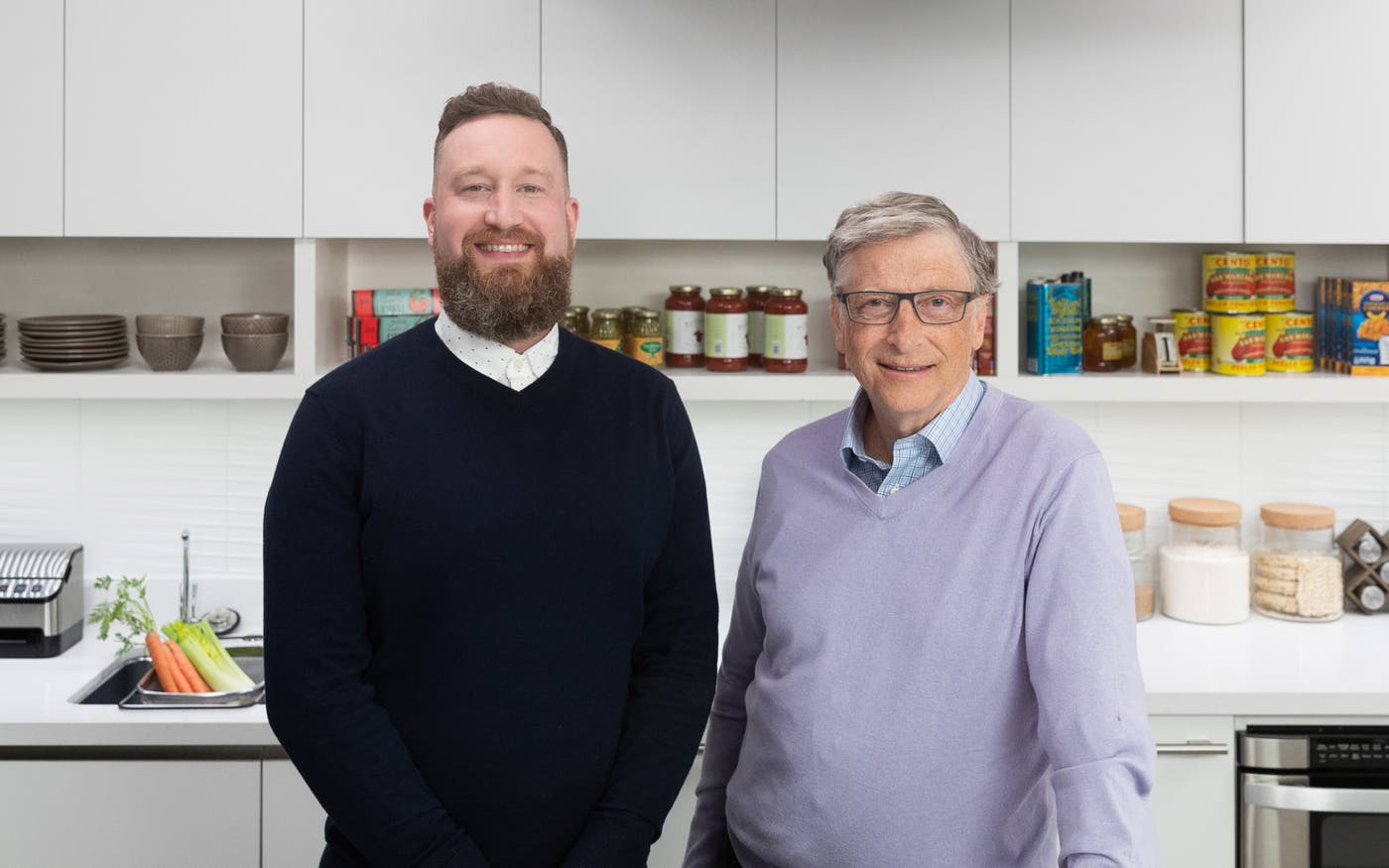
Food for thought
How BBQ chicken can prepare you for life after high school
Robert Hand teaches his students how to take care of themselves after they graduate.

I never really learned how to cook. Other than scrambling eggs over a fire during Boy Scout camping trips, it just wasn’t something I was taught growing up. Because I never learned how to make a healthy meal for myself, I ended up eating a lot more fast food than I should’ve—especially when I was young and early in my career.
That’s not the case for Robert Hand’s students.
Robert works at Mount Vernon High School, which is about an hour north of Seattle. He teaches family and consumer science—what we would’ve called “home economics” when I was in school. In other words, he helps his students learn how to take care of themselves after high school, including how to make a nutritious and delicious homemade meal.
In just six years of teaching, Robert has had such a big impact on his school that he was named the 2019 Teacher of the Year for my home state of Washington. He was nice enough to visit my office earlier this year and show me how to make one of his students’ favorite dishes: barbecue chicken.
My lesson in butchering a whole chicken comes from Robert’s Beginning Foods class, which is open to every student at any grade level. I was surprised to learn that his cooking classes are some of the most popular at his school, but maybe I shouldn’t have been: the kids get to eat what they cook in class.
His students love the opportunity to make something by hand and enjoy the immediate results. Learning to cook not only gives kids a skill they’ll use the rest of their lives but can also help build confidence.
“There is a pride in having done it yourself,” Robert told me. “I see it in my kids when we do this: the pride that they have of knowing that they put the time and effort and work into this. [Cooking] is something that seemed intimidating or hard, but it’s really not that difficult to do.”
Although Beginning Foods probably would’ve been more beneficial to me, I was most interested to hear about Robert’s “Life After High School” class for seniors. Students learn practical life skills to prepare them to enter the real world, like how to write resumes and cover letters, put together a personal budget, and get a car loan.
Robert even sends them on a mock job interview (usually with another teacher at the school). Each student in the class has to dress professionally and create a portfolio to take with them. Afterwards, he helps them write and mail a thank you card to the person they met with, just like a real job interview. The whole process gets the kids comfortable with interviewing and sets them up for success.
The real secret sauce, though, is how much of himself Robert puts into the class. Every morning, he greets each person with a fist bump and a “How are you?” If students can’t afford to buy a new suit for a job interview, he takes them to a local thrift store and helps them find a professional outfit on a budget. Around 60% of the students at Mount Vernon High School come from low-income families, so he always keeps a pantry stocked with free food in case someone comes to school hungry.
He also talks to his students often about his own professional journey. When Robert was in high school, he had no idea he wanted to be a teacher. After graduating from college, he still didn’t know what exactly he wanted to do with his life. It was only after a few years of working other jobs—and a pivotal conversation with his wife—that Robert decided to become a teacher.
A lot of his students are in the same boat. They haven’t decided what they want to do after graduation, and Robert uses his own story to help them feel okay about that. “There’s a lot of pressure right now to figure out early on what are you going to do,” he says. “We don’t always know, so the best we can do is prepare kids for every aspect of life and what the next steps are.”
Some of his students do know what they want to be when they grow up, though. And for the ones who want to become teachers, Robert is there to help. He leads the school’s teacher prep program.
It’s just one way that he’s advancing one of his personal goals: to help diversify education in Washington. The student body at his school is majority non-white, and Robert hopes that one day its teacher workforce looks less like him and more like the kids they’re teaching.
The students at Mount Vernon High School are lucky to have a teacher as passionate, engaging, and creative as Robert. It takes a special kind of educator to get kids excited about filing their taxes! The skills he teaches are essential for any student, whether they plan on going to college, vocational school, or straight into the workforce. If we want to give our kids the best chance possible to succeed after high school, we need more amazing teachers like Robert.


